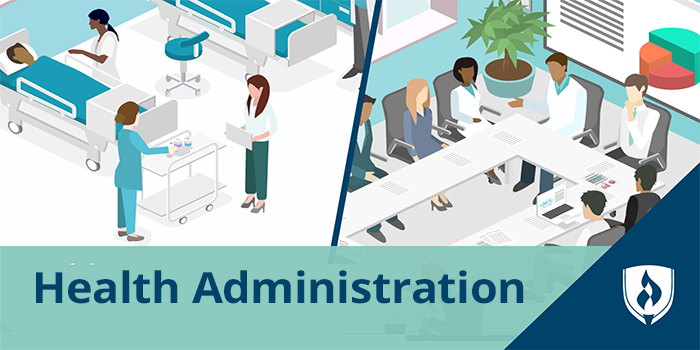
Health Administration Health administration is a field of study and practice within the health care system, focused on the management of health care organizations, health care delivery and the health care system in general. Health administration professionals are responsible for overseeing the day–to–day operations of health care organizations and providing guidance and leadership to ensure that services are provided efficiently, safely and ethically. Health administrators may be employed in a variety of health care settings, including hospitals, clinics, long–term care facilities, physician practices, insurance companies and government agencies. Health administrators must be knowledgeable in a variety of topics related to health care management, including finance, human resources, information technology, quality improvement and health policy.
Health Administration Training Course
Health Administration Training Course is designed to provide students with a comprehensive overview of the principles of health administration. The course covers the fundamentals of health care administration, including the structure and organization of the healthcare system, health policy, healthcare finance, managed care, healthcare technology, and healthcare quality management. Students will also learn about healthcare regulations and compliance, legal aspects of health care, and healthcare marketing. The course also explores the roles and responsibilities of healthcare administrators, including the implementation of healthcare strategies and the management of healthcare operations. Upon completion of the course, students will have a better understanding of the complex and ever–changing healthcare system in the United States and be able to apply the knowledge and skills learned to their future roles as healthcare leaders.
What Do Healthcare Administrators Do?
Healthcare administrators are responsible for overseeing the daily operations of healthcare facilities, such as hospitals, clinics, and nursing homes. They coordinate and manage staff, budgets, and other resources to ensure that the facility runs smoothly and efficiently. They also develop and implement policies and procedures to ensure that the facility meets the needs of its patients. Additionally, healthcare administrators must ensure that the facility meets all legal and regulatory requirements. They may also be responsible for developing strategies to improve patient care and satisfaction.
What Education Does a Healthcare Administrator Need?
A healthcare administrator typically needs a minimum of a bachelor’s degree in healthcare administration, health management, public health, or a related field. Many employers prefer to hire candidates with a master’s degree in one of these fields. Additional certifications, such as those offered by the Professional Association of Health Care Office Management (PAHCOM) may also be beneficial. Some healthcare administrators also need to obtain a state license, depending on the type of facility or organization they work for.
Best University Healthcare Administrators
1. Dr. Stuart D. Flynn – Dean of the Virginia Commonwealth University School of Medicine and Vice President for Medical Affairs
2. Dr. Edward Salsberg – Director of the Center for Workforce Studies at the Association of American Medical Colleges
3. Dr. David Blumenthal – President of the Commonwealth Fund
4. Dr. Robert A. Iezzoni – Professor of Medicine and Health Care Policy at Harvard Medical School
5. Dr. Kenneth E. Raske – President of the Greater New York Hospital Association
6. Dr. Kenneth Davis – CEO of the Mount Sinai Health System
7. Dr. Steven J. Corwin – President and CEO of NewYork–Presbyterian Hospital
8. Dr. William Kirschner – President and CEO of New York–Presbyterian Brooklyn Methodist Hospital
9. Dr. Sandhya Wahi-Gururaj – Senior Vice President and Chief Population Health Officer of the University of Miami Health System
10. Dr. Michael J. Dowling – President and CEO of Northwell Health
What Skills Does a Healthcare Administrator Need?
1. Leadership: Healthcare administrators must have strong leadership skills to effectively manage staff and resources.
2. Communication: Healthcare administrators must be able to effectively communicate with staff and patients.
3. Business Acumen: Healthcare administrators must have a good understanding of business principles and practices.
4. Regulatory Knowledge: Healthcare administrators must have a good understanding of relevant laws and regulations.
5. Problem-Solving: Healthcare administrators must have excellent problem–solving skills in order to anticipate and address issues as they arise.
6. Interpersonal Skills: Healthcare administrators must be able to build relationships with staff and patients.
7. Financial Management: Healthcare administrators must be able to manage the financial resources of the healthcare organization.
8. Strategic Planning: Healthcare administrators must have the ability to develop and implement strategies to meet organizational goals.
9. Technology: Healthcare administrators must have the ability to understand and use technology in order to improve operational efficiency.






